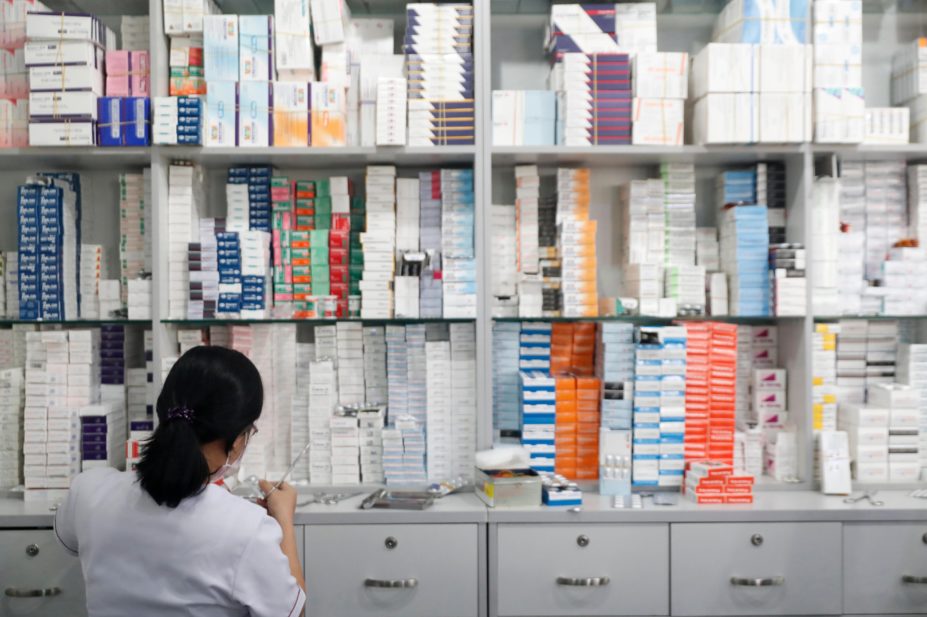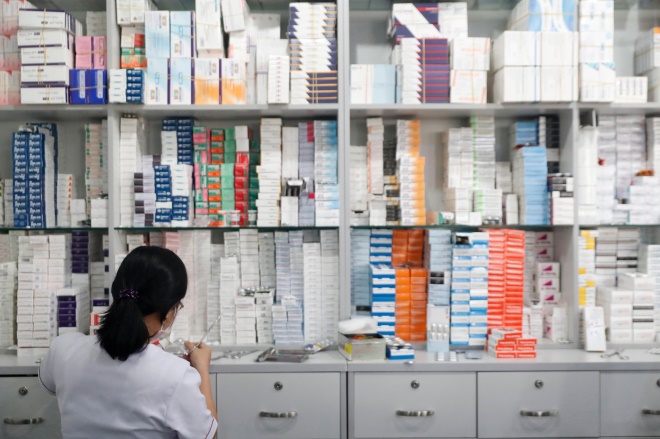
Shutterstock.com
Open access article
The Royal Pharmaceutical Society has made this article free to access in order to help healthcare professionals stay informed about an issue of national importance.
To learn more about coronavirus, please visit: https://www.rpharms.com/resources/pharmacy-guides/wuhan-novel-coronavirus

Source: Alamy Stock Photo
As a preregistration trainee, I have been laying down the foundations for a promising career as a pharmacist. Working full-time in a busy teaching hospital, while studying for the registration exam, was always going to be difficult, but I never imagined I would be thrown in at the deep end — working alongside my registered colleagues on the frontline of the pandemic.
Many other preregistration trainees across all pharmacy sectors are also facing and stepping up to unprecedented challenges each day. Along with other frontline pharmacy staff, we’re working longer and more stressful shifts, often without the personal protective equipment (PPE) necessary to reduce the risk of falling ill ourselves. Still, we’re committed to providing the best care we can.
But we’re worried about our careers too.
I was uneasy while I waited for a decision from the General Pharmaceutical Council (GPhC) about the impact of COVID-19 on my training and registration. It had already impacted me personally — I was at home self-isolating with mild symptoms of the virus.
And then on 26 March 2020, I learned that the registration exams were to be postponed until late 2020 to early 2021, and began to process what this meant for us trainees. I had mixed feelings.
I can’t help but feel disheartened that pharmacy preregistration trainees are not being welcomed into the pharmacist workforce
Even though there was some relief in knowing I would not have to work through a pandemic while desperately trying to cram for an exam, the more I thought about it, the more questions I had, such as: what would I do for work? Could I work and get paid as a ‘provisional’ pharmacist or would I be paid only the wage of a preregistration trainee? What if I was left unemployed for months? How would this impact my future career progression? How would my friends with international visas be affected? Would there be a shortage of pharmacists?
But what niggled at me the most was our counterparts in medicine and nursing being fast-tracked into becoming registered healthcare professionals, and not us. We are essential healthcare workers too.
I can’t help but feel disheartened that pharmacy preregistration trainees are not being welcomed into the pharmacist workforce and are, instead, being denied an opportunity to register for at least six months, with little direction about our role in the interim. The lack of urgency to recruit new pharmacists makes us feel unimportant. To me, the GPhC sends a message that pharmacists are not considered essential healthcare workers. It’s disappointing.
As a profession, we are largely undervalued by the general public
This feeling is exacerbated by the fact that as a profession, we are largely undervalued by the general public despite our critical contribution.
That being said, I do not want automatic registration. I respect the integrity of the register and have worked too hard to not finish this journey properly.
Universities and other professional bodies around the country are evaluating new ways to assess trainees, such as online exams and/or tutor sign-off. It is not ideal, but I see it as a better option than examination in 2021. I am, however, left wondering how the GPhC will respond should there be a second wave of COVID-19, in which preregistration pharmacists will still be without full registration.
In spite of the uncertainty, COVID-19 will not stop me doing my best for my patients. As a preregistration trainee currently assigned to women’s services, helping on antenatal, postnatal and labour wards, I know that babies will still be born and women will still require obstetric interventions. Patients contracting the virus, reduced staffing levels and PPE protocol are all putting pressure on our women’s health pharmacists, but I am so pleased to have relieved some of this pressure. And I know my peers across other sectors are striving to do the same.
I am so proud to be a part of this preregistration cohort, who have taken the pandemic in their stride — we mustn’t let this contribution go unnoticed.
Courtney Ella Preston is a preregistration trainee at Guy’s and St Thomas’ Hospitals and Evelina London Children’s Hospital


